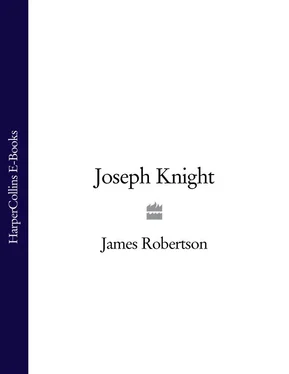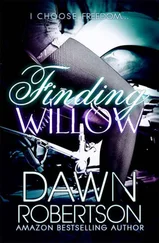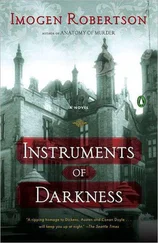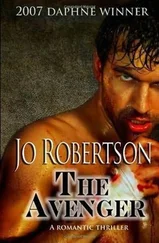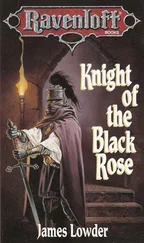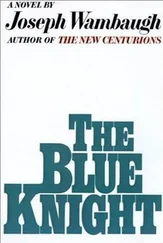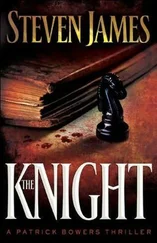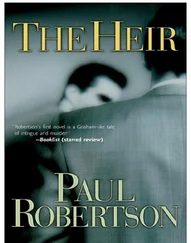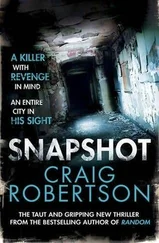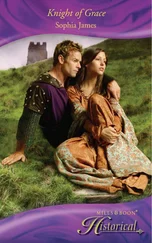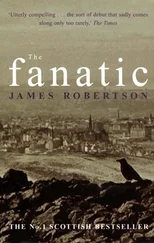‘I thole it, sir, I thole it,’ Jamieson said, as the door closed behind Susan. He was content to play along with her father’s pretence. He had had no idea, when approached by the lawyer to carry out a search, that Wedderburn would still be so sore. Twenty-four years had passed since the case was decided: Jamieson had had two wives and eight children in that time, and his eldest three were all grown and flown from the nest. Although most folk had forgotten the case – Joseph Knight, a Negro of Africa v. John Wedderburn of Ballindean – obviously Wedderburn … But obviously what? Jamieson’s curiosity, which had been professional until this moment, suddenly became more personal.
Not that it was his concern if the old laird still nursed a grievance – if he did not, there would not, presumably, have been any work for Archibald Jamieson – but seeing it exposed in that way, then hastily concealed from the daughter … Jamieson was impressed, intrigued even. He looked again at the Jamaican painting. The men in it were young, in their twenties or thirties. If it was John Wedderburn in the middle, the other two must be his brothers. Jamieson wondered if Knight had already become a possession when the painting was done.
Wedderburn was now seated, setting out paper, ink and pen. ‘I think our business is concluded,’ he said, glancing up. ‘You’ll send your bill to Mr Duncan? He’ll expect a full account of your activities.’
This was it? The matter sealed? What was Wedderburn trying to do?
‘Aye, certainly, Sir John,’ Jamieson heard himself say. ‘Thank ye. It’s an honour tae hae been o service, sir. Tae a gentleman such as yoursel.’ He took a chance. ‘That, eh, painting. If I micht …’ He advanced towards it. ‘Is that yoursel in the middle, Sir John?’
Wedderburn glowered at him. ‘It is.’
‘It’s very fine,’ Jamieson said, peering closer. ‘A very fine likeness.’
Wedderburn half rose from his chair. ‘No it is not. It’s poorly executed. The artist … well, one had to settle for what one could get out there. Now –’ He gestured at the door, sat down again, began to write.
‘Of course.’ Jamieson, still contemplating the painting, stepped away from it. But he could not resist touching Wedderburn’s wound one more time.
‘Ye’ll be, I dout … ye’ll be ane o the great Wedderburns? Like Lord Loughborough, the Chancellor o England? Ye’ll be o his faimly, sir?’
Sir John Wedderburn stopped writing, looked at Jamieson as if at a worm. ‘No, sir. Lord Loughborough is of mine. Good day.’
Jamieson turned and hurried from the library.
In the hallway he paused to catch his breath, half disgusted at his own sycophancy, half pleased at its effect. Almost at once he became aware of a shadow hovering on the stairs above him. It was Aeneas MacRoy, the sneering creature who had inspected him like a school laddie before announcing his arrival to Wedderburn. MacRoy descended without a word. His deep-set dark brown eyes flickered to a silver salver that sat on a nearby half-moon table, as if he expected Jamieson to try to steal it. He led him out the way he had come in, past the kitchen and the wash-house, down a freezing stone passage and across to the stables where his horse was tethered. Only then did MacRoy speak.
‘That didna tak lang, did it?’
‘No.’
‘And it’s a fair ride back tae Dundee.’ The implication was that Jamieson had wasted everybody’s time, including his own. Jamieson was half inclined to agree, but did not want to admit it.
‘Aye.’
‘Wi this wind ye’ll likely hae a face as hard as a kirk door by the time ye win hame.’ Without waiting for a further response, MacRoy hurried back into the house.
Jamieson, pondering the probable accuracy of the prediction and the grim satisfaction with which MacRoy had uttered it, warmed himself for a minute at the horse’s flank. It was a long trip for a twenty-minute interview. He could, of course, have made his report to Mr Duncan, Wedderburn’s lawyer, but he had wanted to see Ballindean and its laird for himself. Jamieson had spied on unfaithful wives and husbands, eavesdropped on radicals, hunted down cheats, thieves, eloping daughters and dissolute sons, but he had never had to search for a black man before. He had been curious to see the master who was still chasing a runaway slave after twenty-four years. And now, having seen him, he was even more puzzled. Wedderburn’s sudden burst of bad temper had been counter-balanced by apparent indifference as to Knight’s fate. What was Wedderburn’s motivation? Jamieson could not figure it out. He wondered if he was losing his touch.
Yet why should he think that? He’d not performed badly over the United Scotsmen, an affair that had involved much discreet inquiry and cultivation of dubious acquaintances, and a little danger. He had attended, in disguise, a meeting of radicals at Cupar, narrowly avoided a severe beating in the back streets of Dundee, and helped the authorities chase a notable agitator out of the country. This kind of work was paid for by the proprietors of the new manufactories that were going up everywhere, changing the face of the country. Jamieson did it because it was there, and because it paid better than his other work, copying documents. He liked the owners neither more nor less than he liked the weavers. As he had told Wedderburn, he did not consider himself political.
He was about to mount up when he realised he was not the only human being in the stable. The lassie, Susan, emerged from one of the stalls, herself and the white dress now protected from dirt and cold by a black cloak clutched close about her.
‘I know the matter you were here to see my father about,’ she said.
‘Oh aye?’
‘Oh aye,’ she echoed. ‘I heard at the door.’
Jamieson considered the combination of her directness of speech and her hunched, uneasy stance. He said cautiously, ‘I dout your faither wouldna be best pleased aboot that. Or aboot ye waitin oot here on such a mornin.’
‘Ma faither disna ken aboot either,’ she retorted, a perfect mimic. ‘And I wasna waitin on you . Since I hadna a book tae read, and nae task either, I cam oot tae see the horses.’
He could not help smiling. ‘But ye kent I would be here sooner or later.’
‘And I ken aboot Joseph Knight,’ she said. Then, reverting to English: ‘Don’t you think it’s an interesting name?’
‘Is it?’
‘Biblical,’ she said, ‘but chivalric too, and mysterious. The Black Knight. I think of him as a chevalier of darkness.’
‘Aye, weel,’ Jamieson said, ‘your faither disna share that view.’
‘Papa never mentions him. But we all know about him, it’s hardly a secret. My sisters and I. And Mama too, although she wasn’t married to Papa when it happened. My other brothers and sisters – the old, half ones – even they were too young to remember much about it now, but we all know.’
‘How’s that?’
‘The servants, of course – the older ones. And Aeneas MacRoy with a drink in him.’
‘Him that convoyed me in and oot? Aye, whit sort o a man is that? Some kind o major-domo?’
‘He thinks he is, though it’s Mama that runs the household. Aeneas is our schoolmaster.’
‘The times are tolerant, when lassies cry their dominie by his Christian name.’
She laughed. ‘Only behind his back. In the schoolroom he’s strictly Maister MacRoy.’
‘It’s a queer dominie that gangs aboot like a servant, showin folk in tae his maister. He must leave aff teachin ye as aften as he taks it up.’
‘Aeneas has been here so long nobody is concerned about what it’s fitting for him to do or not do. He and Papa are old comrades – from the Forty-five. I don’t think Papa notices any more whether Aeneas is tutoring us or skulking in a corner or chewing his dinner thirty-two times to aid the digestion – he does that, you know.’
Читать дальше
